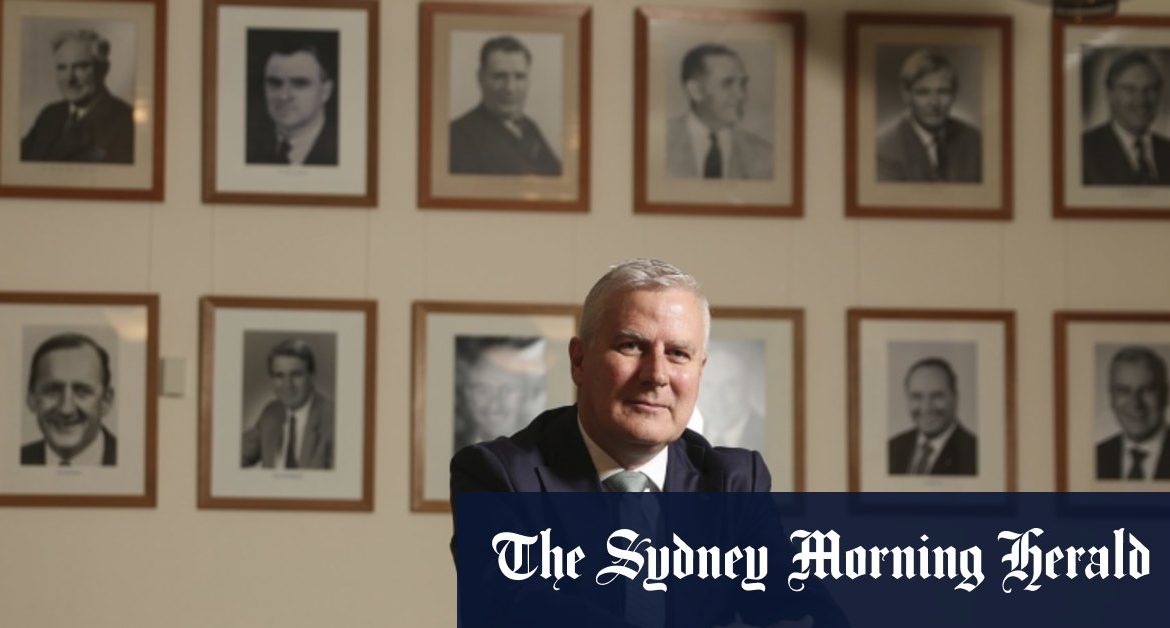Agriculture accounts for about 15 per cent of Australia’s annual greenhouse emissions and was previously carved out of the former Labor government’s emissions trading schemes.
New Zealand, which has committed to a net-zero 2050 target, has excluded its farming industry from that aim.
Australia’s peak farm body, the National Farmers Federation, threw its weight behind an economy-wide target of net carbon zero by 2050 in August last year. The Australian red meat industry has also set a target of becoming carbon neutral by 2030.
NFF chief executive Tony Mahar said agriculture would require government support in the way of research and development to contribute to the nation’s emissions reduction task.
National Farmers Federation chief executive Tony Mahar.Credit:Stefan Postles
“Climate change is already impacting the industry and ongoing, constructive policy is required to support transition and adaptation while protecting agriculture from increased costs that cannot be passed forward,” he wrote in the group’s pre-budget submission.
“Investment in RD&E that supports better understanding of climate impacts and opportunities is critical to support adaptation and mitigation processes.″
Loading
The sector wants an additional $50 million over four years in climate-related research and development funding to drive innovation, such as maximising carbon sequestration in vegetation and soil and building resilience.
“A diverse and sustainable farm sector will benefit from developing new methodologies and ensuring the carbon market is accessible to farmers across Australia,” Mr Mahar said.
Labor’s national reconstruction and science spokesman Richard Marles recommitted his party to an economy-wide net zero aim on Sunday, claiming the government was “utterly divided” on the question.
Mr Morrison flagged at the National Press Club last week he would not ask regional Australians to carry the “burden” of a 2050 target.
Mr McCormack said on Sunday while the country must do its “international bit”, regional Australia must not be disproportionately affected by such a target.
The deputy prime minister said 2050 was a “long way off” and the country faced huge challenges in the coming year.
“We are not worried, or I’m certainly not worried, about what might happen in 30 years’ time,” he told Sky News.
“The concentration at the moment, indeed for me, for the National Party and indeed for regional Australia is getting back on our feet after what’s been a very challenging year.”
“There is no way we are going to whack regional Australia, hurt regional Australia in any way shape or form just to get a target for climate in 2050,” Mr McCormack said. “We are not going to hurt those wonderful people that put food on our table.”
Rob Harris is the National Affairs Editor for The Sydney Morning Herald and The Age, based at Parliament House in Canberra
Most Viewed in Politics
Loading







